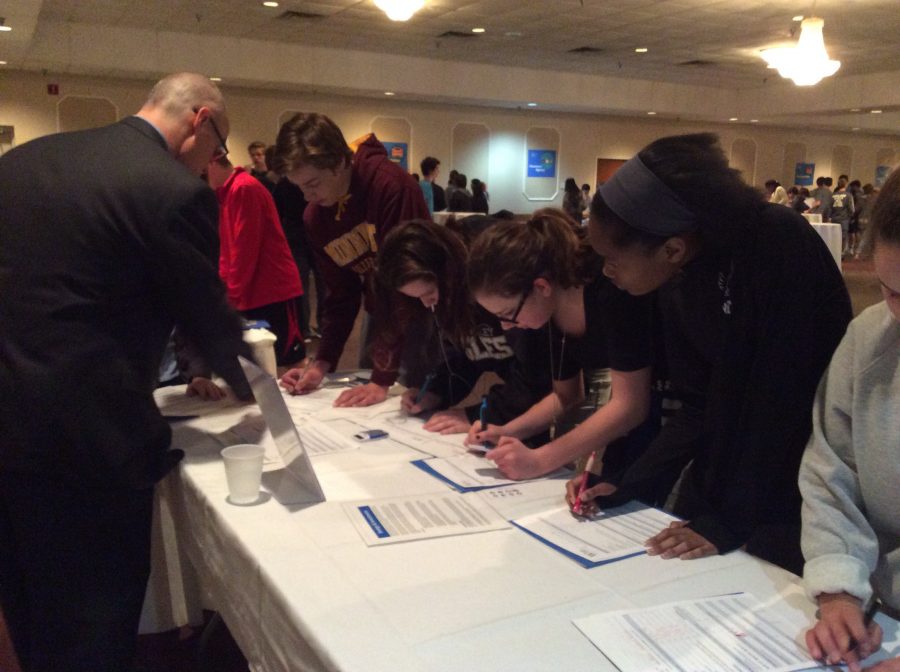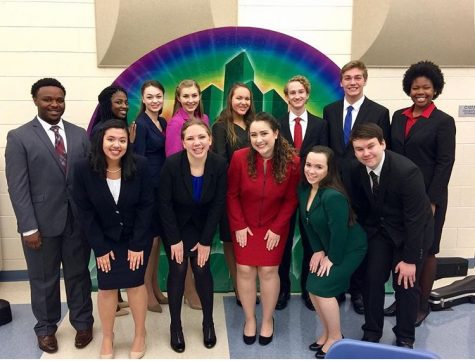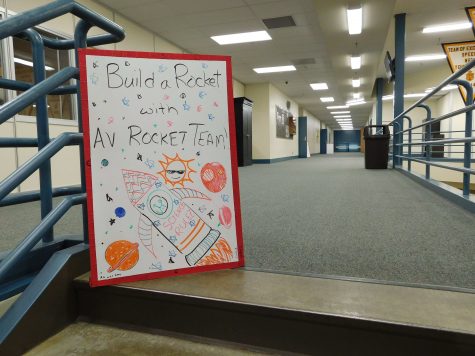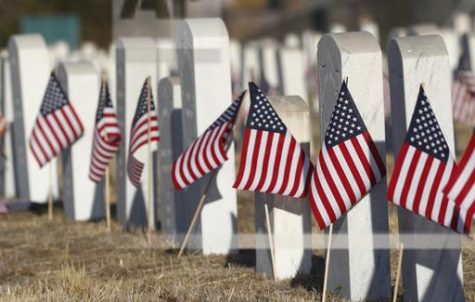Civics Students Tackle the Real World
Students work through a station at the Reality Fair.
On April 27, all ninth grade civics students took part in a budget simulation activity at the Royal Cliff banquet facility, sponsored by Wings Financial. Students engaged in real-life financial scenarios such as making mortgage and rent payments, paying child support, police/health care costs, and other real life scenarios.
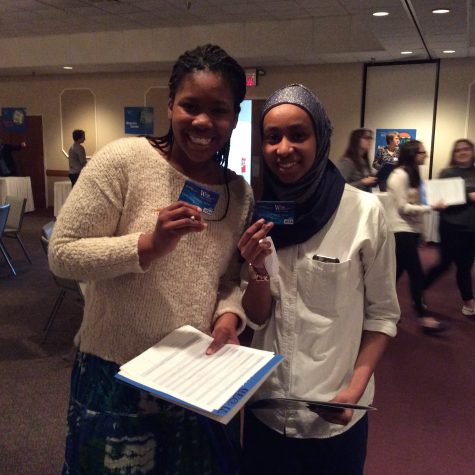
Uzo and Halima got their own debit cards.
It was one of the only activities of its kind in the entire state. Several members of the city council were there, along with a number of district administrators.
“They had various stations they could go to,” said civics teacher Krista Pawlicki. “They had a certain life, a certain income, and then they had to go through different stages like childcare, renting vs mortgage, having to pay utilities, transportation, insurance, groceries, having to go through life. They were giving a situation where they were single, married, divorced, had kids, wanted kids, things like that.”
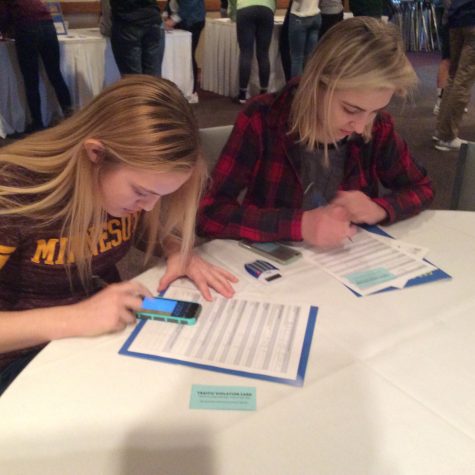
Students figure out the ending balance of their budgets.
Fellow social studies teacher Claire Opsahl also expressed praise for the simulation: “I think students took away the fact that children in particular, cost a lot of money. A lot of my students were shocked at the cost of daycare especially, and then I think students also came up with their own solutions as well.”
In particular, something students almost never think about came up: credit scores. “Based on their credit scores,” said Opsahl, “they couldn’t buy certain things, so they really had to do without a lot of things or they had to find another way around .”
For reference, a “good” credit score is considered to be one above 720, and a “poor” credit score is one below 640, according to Credit Karma. A credit score can be improved by making payments on time, developing a credit history by using a credit card responsibly, and not maxing out credit cards. Likewise, doing the opposite of those steps will hurt your credit score. A good credit score is necessary in order to buy things such as a house or a car.
Students involved in the field trip also expressed disbelief at the true cost of life, as well as the lessons they learned.
“The entire field trip taught you how to organize your money when you’re older,” said freshman Halima Badri. “How to make sure that you have enough money to pay for everything that you need like groceries, car payments, and day care. ”
Others students recognized the importance of having a college degree in order to make their life more comfortable.
“My life [in the simulation] was a photographer, and my husband was a bus driver,” said freshman Kate Olson. “So I’m probably gonna go to college and get a job that pays more, and maybe someone who has a good job, too.”
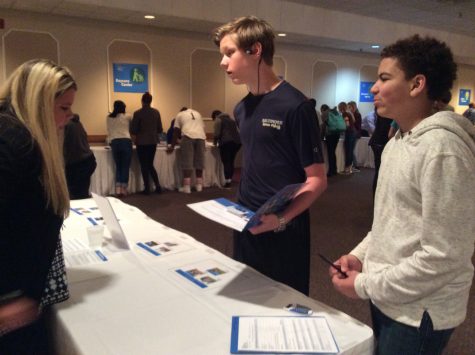
Students explore housing options.
“My job was an elementary school teacher and my husband was a garbage collector” says freshman Kelsey Lorenz. “I started off with a house and ended up in an apartment that didn’t have enough bedrooms for everybody, because we didn’t have enough money. I’m definitely going to plan ahead more instead of having to return everything.”
“I learned life isn’t very nice,” said freshman Nick Kazen Meyer. “Everything adds up to more than you think, and it’s hard to pay all of it because you also want to keep extra money for like [movie] tickets and medical needs. ”
Overall, the most important lesson gained by the students was the importance of managing their money wisely, especially once they graduate high school and reach the real world.
“Starting [money saving options] now will help you get into good habits later, so starting early and having these experiences now will mean they won’t be as surprised when they get to be a senior and realize they need to start saving money,” said Opsahl



